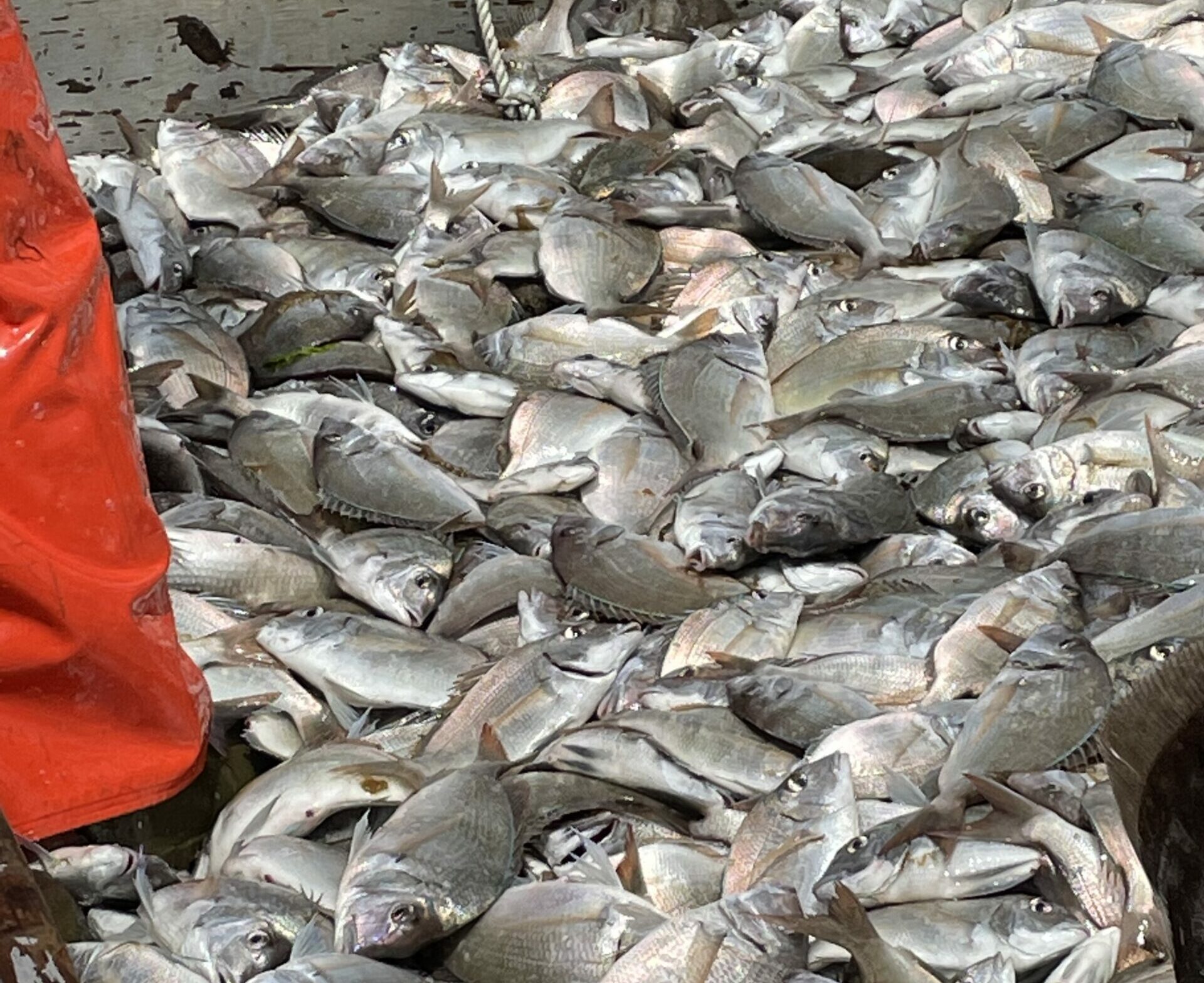- Amid Mexico’s Working day of the Dead festivities, a community produced countless numbers of golden skiffia fish back again into the species’ indigenous array in the Teuchitlán River in Jalisco condition.
- The fish, declared extinct in the wild in 1996, have been portion of a captive-breeding application and just about 10 yrs of restoration get the job done to restore their habitat and clear away some of the threats that would avert profitable reintroduction.
- Freshwater fish are the most threatened team of vertebrates on Earth, with researchers estimating that a single out of three is threatened with extinction.
- This golden skiffia reintroduction is component of the Fish Ark Mexico undertaking, which performs to conserve very threatened species of freshwater fish in Central Mexico, together with 39 species of splitfins, from the spouse and children Goodeidae.
Amid Mexico’s Day of the Useless celebrations, a fish species regarded as extinct in the wild has been granted new daily life. Adorned in colourful costumes and marigolds, a parade of young children, local community members and conservationists marched to launch thousands of golden skiffias into the Teuchitlán River in Mexico’s Jalisco state. The procession heralded what they hope is a new era for these tiny fish.
“The Working day of the Lifeless is a regular Mexican celebration, when it is believed that people’s deceased ancestors return to the land of the dwelling for a single evening, to talk and spend time with their family members,” Omar Domínguez-Domínguez, a professor and researcher from the Michoacan University of Mexico, chief of the golden skiffia reintroduction program, reported in a assertion. “Releasing the golden skiffia all-around this time is a metaphor for how the species has come back again from the dead to return to its property, not for one night, but forever.”
On Nov. 4, neighborhood associates released countless numbers of golden skiffia (Skiffia francesae) fish back into the species’ indigenous variety in the Teuchitlán. The fish had been element of a captive-breeding system and conservation work in between the Michoacan College of Mexico, Chester Zoo in the U.K., the Goodeid Performing Team, Re:wild, and SHOAL.

It’s been practically 30 several years given that a golden skiffia was noticed in the wild. The fish was declared extinct in the wild in 1996, although captive populations continued to thrive in the aquarium fish trade. Experts say dam construction, pollution, water extraction, and the introduction of invasive species pushed the fish to extinction in the wild. This reintroduction marks just about 10 years of work to restore the species’ habitat and remove some of the threats that would avert successful reintroduction.
To prepare the fish for reintroduction, they’re reared in ponds, dewormed, and then positioned in floating cages in the river to acclimate to normal disorders. Ahead of release, the fish are tagged with a nontoxic elastomer that will allow scientists to watch their populations for five yrs and determine whether they are efficiently increasing and reproducing in the wild.
“The reintroduction will benefit not only the purely natural ecosystem but, because of the habitat restoration get the job done that has by now occurred, the communities that stay close to the river as very well.” Domínguez-Domínguez explained.
Freshwater fish are the most threatened group of vertebrates on Earth. Scientists estimate that just one out of a few is threatened with extinction.


One particular of the world’s most threatened teams of fish are the splitfins of the Goodeidae family members, which involves the golden skiffia and about 50 other species, all native to Mexico and areas of the southern U.S. The reintroduction of the golden skiffia is aspect of the Fish Ark Mexico challenge, which functions to conserve 41 extremely threatened species of freshwater fish in Central Mexico like 39 of the goodeids.
“Releasing this species again into the wild is a gentle of hope for this amazing family of fishes — the goodeids — and for the conservation of freshwater fish additional generally,” Domínguez-Domínguez mentioned.
Six years back, Fish Ark effectively reintroduced the tequila splitfin (Zoogoneticus tequila), one more goodeid, into the Teuchitlán River, a venture that has been cited as an exemplary case analyze by the IUCN, the international wildlife conservation authority. The species experienced been declared critically endangered on the IUCN Pink Listing in 2009, but an improvement in its status considering the fact that then put its latest assessment, conducted in 2018, at endangered.
“[P]ositive tales this sort of as the golden skiffia reintroduction can support draw awareness to the issues struggling with freshwater ecosystems, which have traditionally been ignored and underfunded,” said Harmony Patricio, conservation plan supervisor at SHOAL, which functions to conserve freshwater species, and freshwater fish conservation system supervisor at Re:wild, which is effective on reintroducing threatened species to habitats from which they experienced formerly disappeared.
“With thousands of freshwater species threatened with extinction,” Patricio additional, “the story of the golden skiffia returning to the wild is inspiring proof of the several chances for conservation influence that jointly can reverse the freshwater biodiversity disaster.”
Banner graphic: A Teuchitlán female holds up a golden skiffia just before its release. Graphic © SHOAL.


